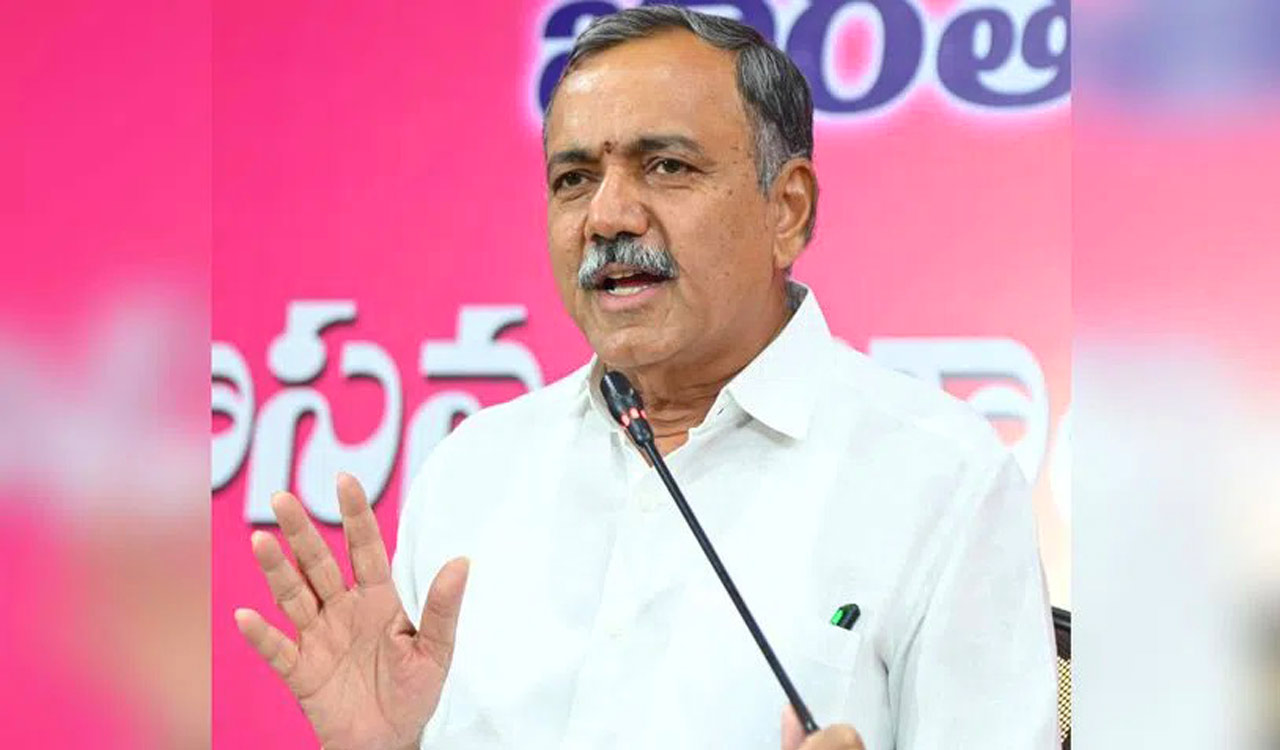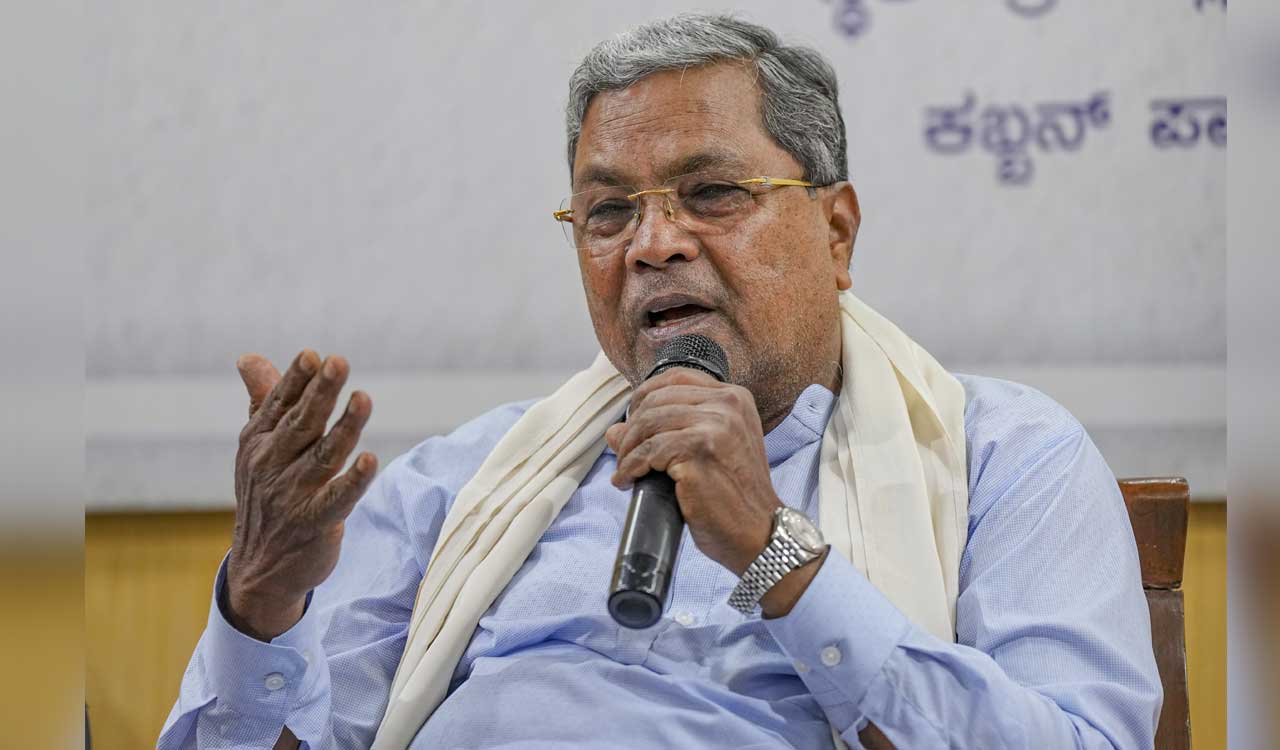Opinion: Governors and the red line
By Pendyala Mangala Devi In States ruled by opposition parties, the Governors there often say the Constitution has given them powers to serve the public directly, and no one can stop them from doing so. Constitutional experts view this statement as unconstitutional. Constituent Assembly The Constituent Assembly discussed in detail the role and functions of […]

By Pendyala Mangala Devi
In States ruled by opposition parties, the Governors there often say the Constitution has given them powers to serve the public directly, and no one can stop them from doing so. Constitutional experts view this statement as unconstitutional.
Constituent Assembly
The Constituent Assembly discussed in detail the role and functions of the office of the Governor. “The Memorandum on Principles of a Provincial Constitution” was circulated to the members of the Constituent Assembly on May 30, 1947, by Sir Benegal Narsing Rau, Adviser, Constituent Assembly. It was prepared in accordance with the Cabinet Mission Plan formulated by the British Parliament on May 16, 1946.
According to the mission plan, the Constituent Assembly initially considered giving powers to the States, including residual power, except for foreign affairs, defence, communications, etc, (which are on the union List today). However, on June 3, 1947, the British government brought forward the issue of Partition of India.
Given the circumstances emerging due to the Partition and the merger of the provinces and States, a joint meeting of the Provincial Constitutional Committee and the union Constitutional Committee of the Constituent Assembly was convened on June 7, 1947. The session concluded that “the Constitution of India should be a federal structure with a strong centre” due to emerging circumstances. Accordingly, most of the provisions of the Government of India Act, 1935, are enshrined in the Constitution. Section 50 of the Act defines the powers of the Governor.
Narsing Rau believed that the highest priority given to the Governor by the British government was not necessary in independent India, as it would be a violation of the sanctity of the elected government. He made it clear that in the event of a conflict between the Governor and the elected government, the elected Cabinet would resign and the Governor would not be able to appoint another Cabinet. He suggested that the relationship between the Governor and the Cabinet should be similar to that between the British King and the Cabinet and that the Governor should have no special powers. Accordingly, Article 163 was incorporated into the Constitution suggesting the role of the Governor.
Sardar Patel’s Point
During the debate on the powers of the Governor in the Constituent Assembly, Sardar Vallabhbhai Patel made it clear to the Governors of the States that they have no power except to report to the President and to convene or dissolve the State Assembly in case of any emergency and threat to peace and tranquillity.
During the discussion on Article 143 (now 163) of the Draft Constitution, HV Kamath moved an amendment to discard the clause conferring discretionary powers upon the Governor. He justified this on two grounds: first, that the similarly envisaged Office of the President who would be elected by the electoral college did not have such discretionary powers; and second, that after it was decided that the Office of the Governor would be a nominated post and not an elected one, then ‘it would be wrong in principle and contrary to the tenets and principles of Constitutional Government’ to have such discretionary powers. Kamath and other members like Rohini Kumar Chaudhuri were fearful of the incidents where Governors utilised their powers to unsettle democratically elected governments during the British regime.
Duties to Perform
Dr BR Ambedkar, the chairman of the Drafting Committee of the Constitution, stated, “The first thing I would like the House to bear in mind is this — the Governor under the Constitution has no functions which he can discharge by himself: no functions at all…. Even under this article, the Governor is bound to accept the advice of the Ministry.” Ambedkar elaborated that while Governors will have no “functions”, they will surely have “duties to perform.”
The two duties that Ambedkar described are: “One is, that he has to retain the Ministry in office. Because the Ministry is to hold office during his pleasure, he has to see whether and when he should exercise his pleasure against the Ministry. The second duty which the Governor has, and must have, is to advise the Ministry, to warn the Ministry, to suggest to the Ministry an alternative and to ask for a reconsideration.”

The only provision is in Article 167, which says the Governor can seek any information from the Council of Ministers and the Chief Ministers. But even this Article drew much opposition in the Constituent Assembly. Kamath put forth the strongest arguments against making it an obligation for the Chief Minister to submit all information called by the Governor. “This is sort of putting the cart before the horse. I think with nominated Governors in the States, it should be left to the Chief Minister or Premier of the State to decide which matter he would like to put before the Governor and which not.” But PS Deshmukh countered saying “ordinary matters which are of a routine nature, I am sure, no Governor in his wisdom would like to question.” “What is the guarantee?” asked Kamath, to which Deshmukh replied: “The guarantee is the Governor’s wisdom and the wisdom of the authority (the Prime Minister) that will appoint the Governor.”
Supreme Court
In SR Bommai vs union of India on the role of Governor, the Supreme Court described federalism and secularism as a part of the basic structure of the Constitution. On discretionary powers of the Governor, the SC in the Nabam Rebia Vs Dy Speaker (2016) ruled that the exercise of the Governor’s discretion under Article 163 is limited and his choice of action should not be arbitrary or fanciful.
The discretionary powers can be categorised into two parts (see infographics). Execution of discretion beyond the constitutional permissibility is viewed as anti-constitutional and considered an attack on the elected government of the State and people’s mandate in democracy. The Governor is part of the Executive, ie, he can neither blame the government nor ask the government for its response publicly. If the Governor is blaming the State government and demanding a response keeping himself/herself away from the executive, it should be viewed as an action with a political motive.
Governors stating that they will solve the problems of the people by conducting darbars is unconstitutional as there is no such function enshrined in the Constitution. The conditions prevailing at the time of independence are no more. States can be given the highest degree of autonomy, as the Constituent Assembly originally intended. Chief Minister K Chandrashekhar Rao had said that a mature democracy will decentralise to the maximum extent possible. It is time the States were given utmost autonomy in the true spirit of cooperative federalism.
Box
Discretionary powers
Constitutional Discretion of Governors includes
• When they have to reserve the Bill for the consideration of the President
• For recommending President’s rule
• When given additional charge as administrator of union Territory
Situational Discretion of Governors
• For appointing Chief Minister after no party get clear majority or when the incumbent dies in the office
• When he dismisses Council of Ministers on an inability to prove confidence in the legislative Assembly
• When he dissolves the Assembly when it loses its majority
Related News
-
Iran holds military drills with Russia as US carrier moves closer
6 mins ago -
This is taxpayers’ money: Supreme Court raps freebies culture
42 mins ago -
Hyderabad: Residents oppose Gandhi Sarovar Project over ‘forcible’ land acquisition
53 mins ago -
Australia level series as Indian women slide to 19-run defeat in second T20I
1 hour ago -
Karnataka beat Uttarakhand in semis, to face Jammu and Kashmir in Ranji final
1 hour ago -
Five Osmania varsity players in South Zone squad for Vizzy Trophy
1 hour ago -
Disciplined West Indies bundle out Italy with ease, tops Group C in T20 WC
1 hour ago -
Zimbabwe shock Sri Lanka to enter super eights, African team’s sublime run continues
1 hour ago



